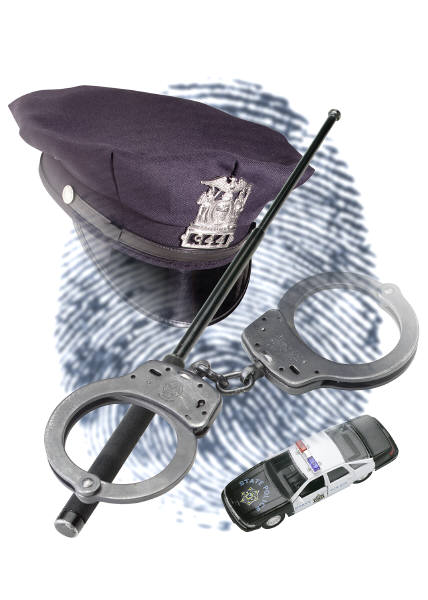

|
|
Some Representative Press Reports
|
|
Fort Lauderdale Police Chief Michael Brasfield was sworn in as president of the Broward County Chiefs of Police Association. Attorney General Bob Butterworth officiated the ceremony at the Fort Lauderdale Car Museum on January 26th. Chief Brasfield has served as Fort Lauderdale's Police Chief since July 1995. Prior to that he was the Executive Assistant Chief of the Seattle Police Department, serving with that agency for 27 years.
Friday, April 19, 2002, 12:00 a.m. Pacific
South downtown pays for beat cops
By Alex Fryer
Seattle Times staff reporter
An association representing Pioneer Square and the Chinatown International District has signed a first-of-its-kind deal with the Seattle Police Department to pay for two full-time beat cops devoted exclusively to their neighborhoods.
The two-year, $325,000 contract completed yesterday illustrates the desire of business districts across the city for old-style community policing, an approach to crime that is more Mayberry and less Gotham City.
A Broadway merchant group is working on a similar plan. In about a year, boosters hope to assess Capitol Hill property owners roughly $2,300 to pay for a pair of Seattle patrol officers to walk the neighborhood.
Though foot and bike patrols cannot prevent random crimes such as the death of 33-year-old Demetri Andrews, who died Friday after a confrontation on University Way Northeast, business associations say beat cops make life tough for the bad guys while ensuring shoppers and residents that help is nearby.
"It's better community policing. It's the same people every day," said Todd Graham, executive director of the South Downtown Foundation, which represents residents and merchants in Pioneer Square, the Chinatown International District and an area south of Safeco Field known as North Duwamish. "You'd think it'd be a no-brainer."
Police officials say they often assign officers to walk beats in neighborhoods. But responding to 911 calls takes priority, and foot patrols are often redeployed for emergencies.
"Our primary deployment is based on 911 calls and public-safety requirements," Deputy Chief Clark Kimerer said. "The needs (of business districts) will have to take a back seat compared to who needs help and how fast do we need to be there to help them."
The South Downtown Foundation was formed in 1999 as a way to address the impact of the new football stadium. The foundation manages $6 million contributed by Paul Allen's First & Goal, which manages stadium construction.
A public-safety study commissioned by the foundation heard complaints from residents and property owners about inadequate police visibility and long response times to emergency calls. The study also noted that business officials in the area didn't want to pay extra for neighborhood security.
Nonetheless, the foundation signed a contract with the city that will pay for two uniformed police officers to work in the neighborhoods.
The South Downtown officers will report to the West Precinct and respond to emergencies if needed. They will not respond to routine 911 calls, however, focusing instead on walking the neighborhood and solving chronic problems such as drug dealing and aggressive panhandling.
The contract specifies that the department will not reduce the current level of police staffing in the sector.
"There will be a heavy emphasis on community policing. They will really get to know the business people and residents in the area," said Mike Brasfield, a former Seattle assistant chief who now advises the South Downtown Foundation.
The department estimates that the salary and benefits of each officer will amount to $72,439 annually. The foundation will reimburse the department for the salaries, as well as accounting, record-keeping and vehicle costs. The department will pay for equipment such as service weapons, handcuffs and vests.
"It's new ground for Seattle," said Assistant Chief Jim Pugel. He said the officers would be absorbed into the department and reassigned after the contract expires, unless the foundation or another neighborhood group renews the deal.
Pugel said the department was amenable to the South Downtown Foundation contract because Pioneer Square is one of highest-crime areas in the city. He said future contracts would also be limited to neighborhoods with significant public-safety issues.
Business groups on Broadway are watching the South Downtown experiment carefully.
Although the East Precinct has a five-officer bike team that patrols Capitol Hill and the Central Area, local merchants want police to walk along Broadway, said Barry Rogel, owner of the Deluxe Bar and Grill and president of the Capitol Hill Safety Coalition.
Twenty years ago, beat cops routinely strolled through the area, he said. Now, police are stretched thin, and locals are worried that greater numbers of street youth and chronic inebriates are starting to affect business.
"If there is a perception of public safety (problems), you lose foot traffic. If you lose foot traffic, I go out of business," Rogel said.
The Broadway Business Improvement Area, which represents about 250 merchants, is considering expanding its boundaries and assessing property owners to raise about $1 million, in part, to subsidize two officers to exclusively work Broadway.
"Public safety is our Number 1 issue," Rogel said. "Are we thrilled to self-assess ourselves to do it? No, but I have to do this to make my customers feel safe."
Monica Moe, executive director of the Broadway Business Improvement Area, added: "We want to do something now so we don't degenerate to the level of The Ave."
Teresa Lord Hugel, executive director of the Greater University Chamber of Commerce, said she started her job in September and quickly noticed a pall over the neighborhood. Drug dealing was rampant. Street kids hassled passers-by.
"There seemed to be some energy around that the streets were fair game," she said. "When I started seeing open drug activity, I was getting pretty distressed."
The chamber had funds to pay off-duty patrol officers to walk University Way Northeast, known as "The Ave," about 80 hours a month, but it wasn't enough. Lord Hugel began pestering her local precinct for added patrols, and in February, the precinct responded.
Three officers now walk The Ave, said Lt. Steven Paulsen, watch commander at the North Precinct. He'd like to add a fourth.
"The biggest benefit in having a foot patrol is it brings the officers closer to the citizens," said Paulsen. "You're not shielded by a patrol car. It allows officers to really know what's going on in their area."
But the officers are not part of a dedicated foot patrol, so they must respond to 911 calls. And police officials are watching the officers' productivity. If crime starts to dip on The Ave, the cops will stay on foot. If the situation remains stagnant, or response time to emergency calls climbs, they will be reassigned to cars, Kimerer said.
The department must constantly balance the needs of a business district with the community at large, he said. That tug of war may prompt more areas to consider paying for their own protection.
"The Police Department has an obligation for general protection, not specific protection," Kimerer said. "Not a specific person, not a specific community. We are obligated to provide public safety to everyone."
Alex Fryer can be reached at 206-464-8124 or afryer@seattletimes.com.
Surveillance planned for Pioneer Square
Group sees a crime deterrent, but others say the plan smacks of Big Brother
Tuesday, August 20, 2002
The next time you wander through parts of Pioneer Square, electronic eyes may be watching and recording your every move.
The Pioneer Square Community Association plans to install three closed-circuit television cameras, or CCTVs, to monitor public areas as a way to prevent crime and make neighbors feel safer.
With a $20,000 grant for a one-year pilot project, the neighborhood group said it'll likely mount fixed cameras on private property to view parts of Occidental Park and the Yesler Way corridor near Third Avenue.
Video surveillance of public places is on the rise nationwide, and common in parts of Europe, renewing the debate about privacy rights. Everett, Tukwila, New York City and much of Great Britain now use CCTVs to watch subways, sidewalks, streets and stadiums.
The Pioneer Square project will be run by a community group, not a city agency.
"It's certainly not a panacea by any means," said Casey Jones, the association's executive director. "We hope to send a message that this place is cared for and there's an expectation that here in this public place you won't conduct illegal activity."
Civil rights activists say the idea smacks of George Orwell's "1984," the novel in which Big Brother uses cameras to monitor citizens' movements.
"The idea of being watched all the time makes me uncomfortable as a woman," said Susan Tillitt, an artist who lives in Pioneer Square.
"Cameras everywhere is a form of harassment in general. You don't spy on me for my safety. It's a creepy feeling, because you don't know who's watching you."
Lavale Smith, a homeless man who spends his day at the city park near Third Avenue and Yesler Way, said: "It's an invasion of privacy. Why here? That's wrong."
Doug Honig, public education director with the American Civil Liberties Union of Washington, speaking generally about video cameras, questioned how video cameras would be used: "Who has access to these tapes? How long are they stored? What's done with it?
"The overwhelming material they capture is legal conduct by law-abiding citizens. It's usually done for a benign reason. As we get more and more of these cameras, people get more used to them. Down the road, it moves us closer to Big-Brother-is-watching scenario."
Yesterday, Sunny Nguyen said he favored the idea because he thought it would help reduce crime.
"There will be more security around here," said Nguyen, who recently witnessed an assault at night. "I'm not worried about privacy. We're in a public place."
Once installed, within the next two or three months, the Pioneer Square cameras will capture digital footage that would be kept for "a short time," said Jones, who didn't know how long that would be. "We're not storing months and months worth of footage to try to use it in some way."
The group hasn't signed a contract or worked out other details, such as who will get access to the footage, but ideally police could request it, Jones said.
CCTVs have become increasing popular with law enforcement. In a 2001 report, the International Association of Police Chiefs found that 700 agencies use the cameras, mostly to help with investigations or gather evidence.
"It's no different than you or I standing on a street corner with a 35 millimeter camera taking pictures," said Mike Brasfield, former Seattle assistant police chief and a public safety coordinator with the South Downtown Foundation.
The foundation, formed in 1999 to distribute mitigation money from the new football stadium and exhibition center, provided $20,000 grants to three neighborhoods for cameras.
Within days, the Sodo Business Association plans to mount two video cameras onto private buildings to nail graffiti artists who've been tagging buildings in that south downtown neighborhood.
"The city does the best it can but it can't keep up with the public graffiti," said Mike Peringer, the group's president. "We are taking it upon ourselves to do something about it."
He declined to say where the cameras would be mounted, but that it would be on private property and would likely move. Inevitably it would trained on some public sidewalks and streets.
The cameras can zero in to read a license plate on a van and be monitored in real time by the company providing the equipment, Seattle Video, he said.
While Sodo and Pioneer Square move forward, the Chinatown/International District decided recently not to accept the grant because of concerns with operations, costs and the vendor.
Neighbors in the district also wrestled with issues of privacy, including the possibility that cameras create a false sense of safety for people. They ultimately will not accept the $20,000 grant, but still like the idea.
"We hope that we'll be able to use it in case crimes do happen," said Sue Taoka, executive director of the Chinatown/International District Public Development Authority. "If it becomes some level of deterrent, it creates a safer neighborhood overall."
Some proponents point out that people's public lives are already being watched.
More than 200 traffic cameras watch major freeways around greater Seattle. Cameras track car prowlers in Community Transit park-and-ride lots and watch over children in school playgrounds and lunchrooms.
King County Metro is in the process of installing camera systems aboard 160 buses and plans to add more.
"It's to make people feel safe, not just to catch bad guys," said Linda Thielke, Metro spokeswoman.
Four fixed cameras on 40-foot buses and five cameras on 60-foot buses broadcast real-time to a viewing station at Metro headquarters. Only transit police can get access to the recording, and so far they've done so only when a driver files an incident report, Thielke said. Tukwila police zero in on criminal activity along one of the worst sections of Pacific Highway South with video cameras.
In Everett, five cameras mounted on lamp posts at downtown intersections transmit images to a viewing room at the police station. Officers can pop a videotape into the player and record, but they don't automatically do so. Any long-term recordings require supervisor approval.
"It didn't cure the crime problem, it just added another tool for the police to use," said Lt. Marty Parker, who started the camera project five years ago after the downtown business association requested it. "With six cameras, officer can watch a multitude of areas."
Parker once observed a vicious juvenile assault in the viewing room and radioed a patrol officer to the scene. The suspect fled at the sound of approaching sirens, but Parker tracked the man with the pan-tilt-zoom cameras as he fled for three blocks.
Yet in Great Britain, where news reports estimate more than 1 million cameras patrol the cities and towns, two major studies of CCTV use have shown that they haven't clearly reduced crime. A report in June by the National Association for the Care and Resettlement of Offenders found that of 24 English cities studied, 13 showed that crime had fallen since CCTV cameras were installed. In four, crime rose significantly, and in the other seven cities, cameras had no effect.
P-I reporter Phuong Cat Le can be reached at 206-903-0370 or phuongle@seattlepi.com
 |
Police Procedures Review examination and audit of current or proposed policies and procedures. |
 |
Court Preparation, Review, and Testimony review, analysis, critique, case preparation, and expert witness in law enforcement related litigation. |
 |
Training and Public Safety Consulting customized training for a wide range of commercial, industrial and public entities. |

|
Health
Industry Fraud and Business Risk Management
review, analysis, investigation,
and expert witness.
|
|
2014 - Michael Brasfield & Associates, Inc. -
|